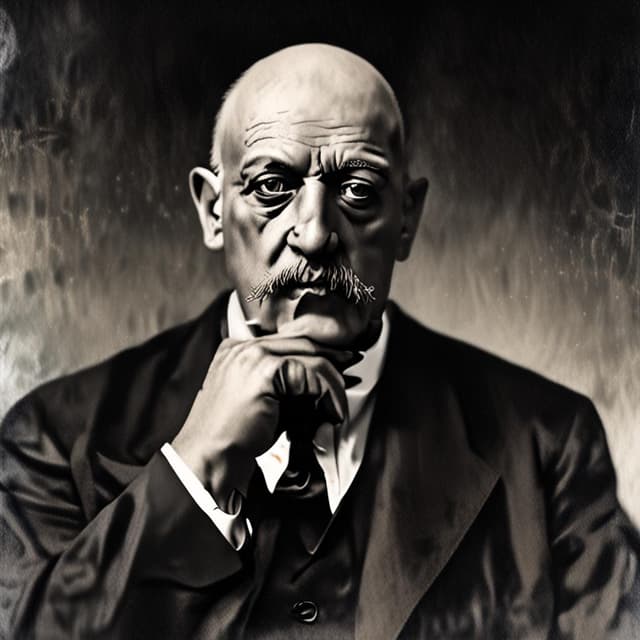
| Born | 12 October 1875 (age 72) Leamington Spa, England |
| Died | 1 December 1947 (aged 72) Hastings, England |
| Legacy | Pioneered individualism and ritual magic • Integrated the unconscious psyche into spiritual practices • Continuing influence on modern occult and metaphysical thought |
| Spouse | Rose Edith Crowley (m. 1903; div. 1909) |
| Known for | Founding the religion of Thelema • Influential role in the development of Western esotericism |
| Occupation | Occultist • mystic • author • philosopher • magician |
| Notable works |
Aleister Crowley (1875–1947) was a renowned British occultist, mystic, and ceremonial magician who founded the religious and philosophical system known as Thelema. He was an influential, if controversial, figure in the development of modern Western esotericism and alternative spirituality.
Born into a wealthy family in Leamington Spa, England, Crowley rejected his strict Christian upbringing from an early age. While attending Cambridge University, he became fascinated by the occult and joined several metaphysical organizations, including the Hermetic Order of the Golden Dawn. His growing interest in ritual magic, mysticism, and the exploration of human consciousness would shape the rest of his life.
In 1904, during a trip to Egypt with his wife Rose, Crowley experienced a profound mystical vision in which he received the text of ''The Book of the Law'', which would become the central scripture of his new religion, Thelema. This experience marked the beginning of Crowley's role as the "Prophet of a New Aeon" - a title he would embrace for the rest of his life.
Over the following decades, Crowley elaborated on the principles of Thelema, which centered around the core maxim "Do what thou wilt shall be the whole of the Law." This philosophy emphasized individual freedom, self-discovery, and the cultivation of one's true will or essential nature. Crowley saw Thelema as a spiritual revolution that would usher in a new age of humanity.
Though Thelema never gained a massive following, Crowley's writings and teachings had a significant impact on the development of modern Wicca, chaos magic, and other Western esoteric movements. His books, such as ''The Book of the Law'', ''Magick (Book 4)'', and ''The Book of Thoth'', became foundational texts for practitioners of ritual magic and occultism.
In addition to his role as a religious reformer, Crowley was a prolific author, poet, painter, and practitioner of ceremonial magic. His occult and metaphysical writings covered a wide range of topics, including alchemy, astrology, kabbalah, yoga, and the exploration of altered states of consciousness through meditation and psychoactive substances.
Crowley's unorthodox spiritual practices and his exploration of the darker aspects of the human psyche (including sexuality and the subconscious) were sometimes met with controversy and scandal. However, his work was also deeply influential on later 20th century counterculture, existentialism, and the New Age movement.
Though Thelema never became a major world religion, Aleister Crowley's legacy as a mystic, magician, and philosophical reformer has endured. His writings and ideas continue to be studied, debated, and applied by practitioners of modern Western esotericism, Wicca, and new religious movements.
Beyond his direct influence on alternative spirituality, Crowley's emphasis on individualism, self-discovery, and the exploration of consciousness have also resonated with diverse fields, from depth psychology to avant-garde art. His life and work remain the subject of ongoing fascination, scholarly analysis, and occasional controversy to this day.